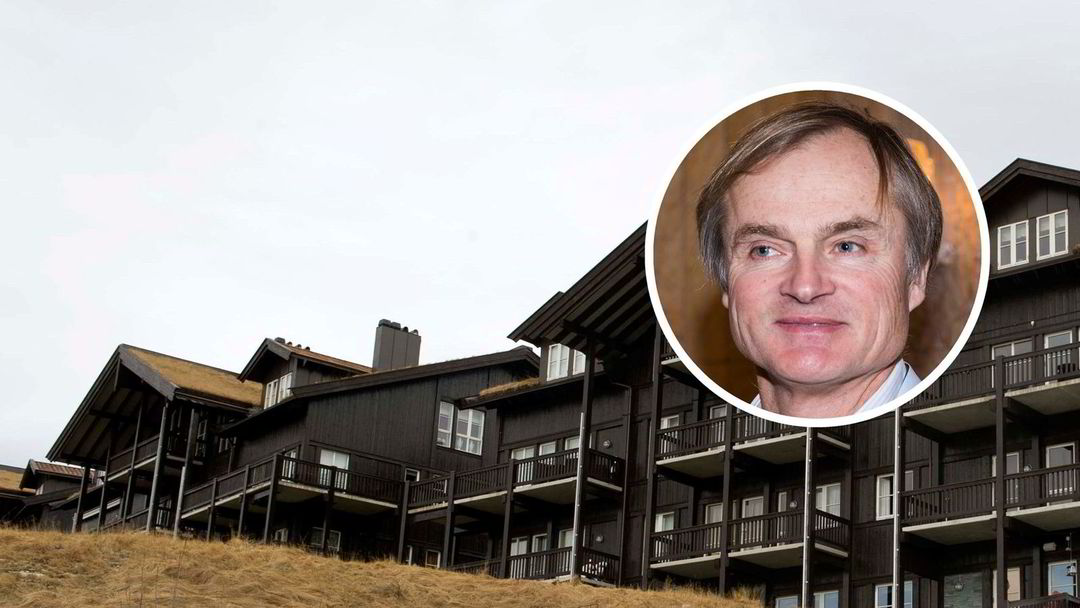Last week, the main index on the Oslo Stock Exchange fell by 0.9 percent, but it is still very close to its historical high.
At the same time, the price of oil fell by 4.3 percent to $78.4 a barrel, thus the price fell by nine percent in less than a month.
It was a mixed week on stock exchanges around the world. In the US, the broad S&P 500 and Nasdaq Technology Index rose 0.3% and 1.2%, respectively, while the Dow Jones Industrial Average fell 1.4%.
Olaf Chen, head of global allocation and interest rates at Storebrand, says there will be tension related to the minutes of the latest US Federal Reserve (Fed) meeting, which will be published on Wednesday.
– How does the Central Bank interpret the position on monetary policy in the future, and what is said about what is required for them to change the stated speed of reduction in support for purchases of securities. And perhaps when they think they can start raising interest rates again, which is what market rates were until next summer, says Chen, who is also excited about whether there will be a change in the US central bank governor — which could happen in This case in a short time.
Marius Gunsholt Hof, chief economist at Handelsbanken Norge, believes the Fed’s communications on inflation will also be important to follow.
The market thinks the Fed is a little behind in terms of inflation. Therefore, it will be exciting with the minutes of the Federal Reserve’s interest rate meeting on Wednesday. Then one can look in particular at whether the Fed’s internal uncertainty, about whether high inflation is temporary or more significant, is stated more explicitly in the wording, he says.

Chief Economist Marius Gunsholt Hof at Handelsbanken is excited about the US Federal Reserve’s formulation of inflation expectations. (Photo: Thomas T. Cleven)
Possible alternative to the Federal Reserve Chairman
Chen also thinks it worth watching whether or not there will be a new US central bank governor. No one knows whether Jerome Powell will continue to chair the US Federal Reserve, or whether President Joe Biden will choose Lyle Brainard as his replacement after the current term expires in February next year.
Powell is clearly the favourite, so the market applauds his persistence. In the event of Brainard’s election, we should expect immediate market reactions, precisely because it is considered more “pessimistic”. Many will likely believe that interest rates will rise a little slower under her leadership. But in my opinion, one should not overstate the differences between the two. Both are highly data-driven, with decisions being made based on key numbers and expectations about these in the future. Gunsholt Hoff says the Fed also relies on consensus.
In any case, he believes it would be difficult to predetermine any market effects, if Brainard, and he believes that some of the potential reactions may be short-lived.
– But in principle, Powell is the one to expect, and the market is pricing in a much sharper rise in interest rates than the Fed indicated. In principle, the rate increase is priced in June of next year and a total of 2-2.5 increases for the whole of 2022.
Increased coronary heart disease
Chen believes that increased awareness of infection rates, which are now blazing in large parts of the world, may also affect markets in the future. But while many countries are shutting down again, massive lockdowns are not envisaged again, as many countries have now been vaccinated.
If the epidemic speeds up again, it could go both ways. Because when the brakes are put in, it’s talking about low interest rates for a long time, and that in itself is good for the stock market, he says.
Lower interest rates will give higher purchasing power, but on the other hand, higher inflation means higher prices.
– It is noted on the portfolio when the prices of essential goods rise by ten, 20 and 30 per cent over essential goods. Some people try to say that inflation is positive because it reduces the real burden of debt. And yes, that is true. But everything becomes more expensive is not a good thing. Then Chen says it doesn’t help that the interest rate is low and you get checks from the authorities.
Gunsholt Hof points out that there has already been more volatility this fall, now that central banks have moved from aggressively stimulating to withdrawing stimulus further. At the same time, increased infection and hospitalization rates in several places, and new closures, have contributed to the unrest. Here at home, the chief economist notes that such events have an immediate impact on the krone exchange rate, which is also linked to the weaker oil price.
Norway is highly influenced by international conditions, and we have also recently seen that the market interest rate expectations of the Bank of Norway have fluctuated in line with those of the major central banks around us. As of today, the market appears to be split in the middle as to whether Norges will raise its key rate to 1.25 or 1.5 per cent next year. He says our forecast is still 1.25.
Holiday closed in the United States
In the United States, Thanksgiving is celebrated this week, which means that the American stock exchange is closed on Thursday and closes early on Friday.
Historically, stocks do well in the short holiday week, according to CNBC.
“The last five trading days in November have been traditionally positive since 1950. There is a two-thirds chance that the market will rise the day before Thanksgiving, a 57 percent chance the day after Thanksgiving, and a 71 percent chance that it will rise on Monday,” Sam Stovall said. CFRA Investment Analyst.(Terms)Copyright Dagens Næringsliv AS and/or our suppliers. We would like you to share our cases using a link that leads directly to our pages. All or part of the Content may not be copied or otherwise used with written permission or as permitted by law. For additional terms look here.

“Explorer. Unapologetic entrepreneur. Alcohol fanatic. Certified writer. Wannabe tv evangelist. Twitter fanatic. Student. Web scholar. Travel buff.”




